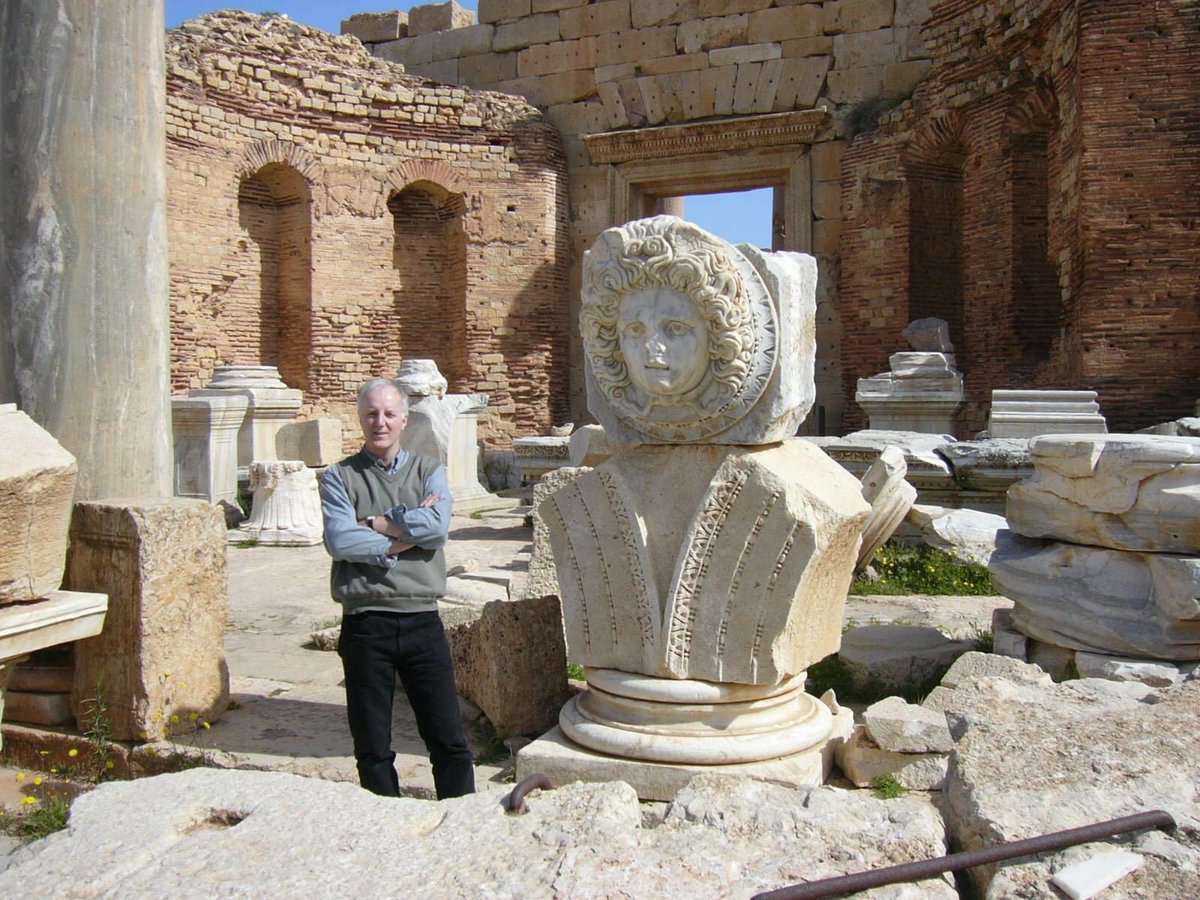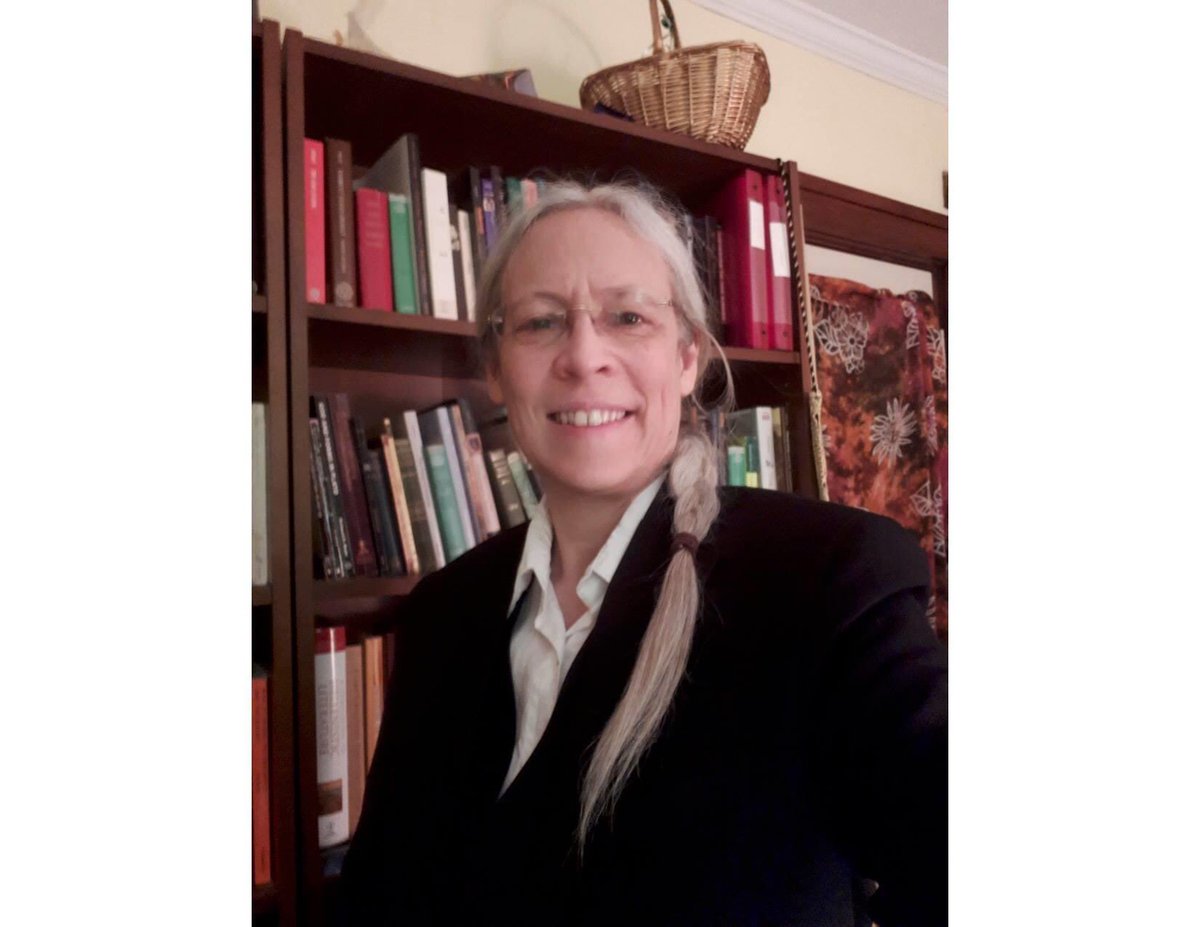Now, let’s meet another of our academic teaching staff (non-permanent, non tenure-track academics with a focus on teaching), @KatyMackay
Katy Mackay is an Associate Lecturer and has taught Classics (Latin, Greek, Classical Myth, Ancient World, Greek and Latin Literature, Women, Gender and Sexuality, Sex in Antiquity, etc) at the U of A since 2007.
Katy's BA is in English & Classics from the University of New Brunswick, and she did her graduate work at Cornell and Harvard Universities.
Her main academic interests are Greek and Latin literature (especially lyric and epic), verse funerary inscriptions (both real and literary), Classical Myth and its reception, and women's lives in antiquity.
Katy Mackay has three adult sons, bakes late at night when under stress, and has far too many dogs and cats (3 of each, plus a revolving crew of foster greyhounds and lurchers).
Next up, our longest-serving division member, Prof Jeremy Rossiter. prof Rossiter’s research interests include the history & archaeology of a Roman North Africa, in particular Carthage, Tunisia.
Prof Rossiter's major project in Carthage has been the excavation of a Roman bath house and the accompanying broader study of the city’s Roman baths. Some of his recent work at Carthage has been published in Carthage Papers II.
Prof Rossiter is also the Curator of our W. G. Hardy Museum (Classics Museum) which boasts a large collection of Greek, Roman, and Egyptian antiquities. Sadly, our museum is currently closed due to COVID restrictions.
Another of Prof Rossiter's interests is Roman mosaic art, especially mosaics which depict scenes of Roman sporting events (ludi). Some of the best examples have been found in North Africa and can be seen today in the Bardo Museum in Tunis.
These mosaics include scenes of athletic competition, chariot racing, bear fighting and boxing. Prof Rossiter published a paper recently on the use of animals, especially bears, in the Roman amphitheatre at Carthage.
Prof Rossiter teaches courses on the Roman provinces and popular courses on Roman spectacles (gladiators and chariot races), Roman Britain, & Pompeii. He also teaches Latin most years, & strongly believes in the value of language learning for all students studying Classics.
And now, we turn to our final entry in our Meet Your Instructors thread (our way of making sure #UAlberta students can get to know their instructors, complications of COVID teaching notwithstanding)...
Prof Selina Stewart has been at #UAlberta for almost 2 decades, teaching a range of courses on Greek language, literature, and culture. her main research interests are Greek poetry and Greek science, especially astronomy.
Prof Stewart's academic journey has been an erratic movement across provincial, national, linguistic, disciplinary & departmental borders. She has published on Hellenistic poets, Homer and data related to colour perception and categorization in Ancient Greek poetry
In this, she follows in the footsteps of one of her heroes, Alice Kober of Linear B-decipherment fame). Prof Steward enjoys combine 2 interests: the power of poetry and music in the Greek Archaic Period, and the history of science – particularly of optics & geometry.
Currently she is working on an article on Sappho, another on the Greek constellations and finally a book manuscript on optics and colour terms in Greek poetry.
And that's a wrap! Thank you all for following along with our rather lengthy twitter thread as we introduce our instructors to our students at #UAlberta and to the world beyond, and showcase the depth and breadth of teaching & research we have here in Classics at #UAlberta.
For even more in-depth discussion, "like" our Facebook page (Classics at UAlberta), where we don't have to worry about text limits on tweets :-) Happy New Academic Year, everyone! And a very Happy Green & Gold Day to #UAlberta.

 Read on Twitter
Read on Twitter




